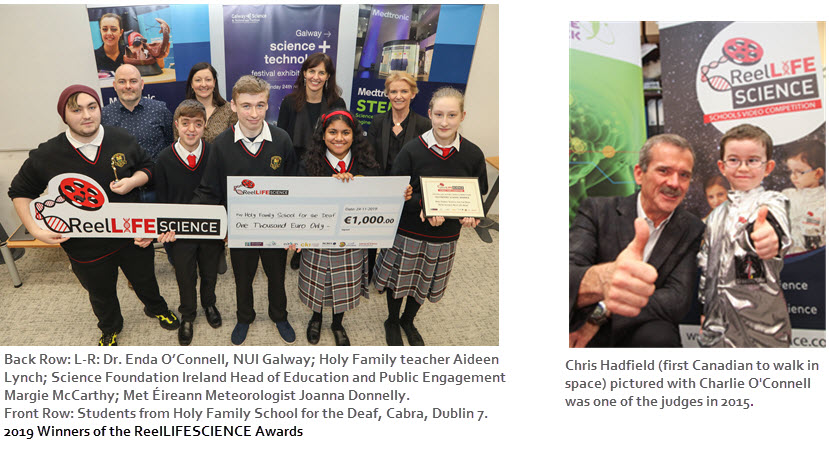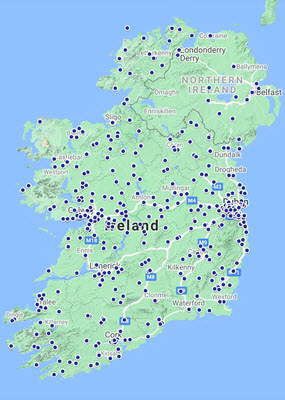-
Courses

Courses
Choosing a course is one of the most important decisions you'll ever make! View our courses and see what our students and lecturers have to say about the courses you are interested in at the links below.
-
University Life

University Life
Each year more than 4,000 choose University of Galway as their University of choice. Find out what life at University of Galway is all about here.
-
About University of Galway

About University of Galway
Since 1845, University of Galway has been sharing the highest quality teaching and research with Ireland and the world. Find out what makes our University so special – from our distinguished history to the latest news and campus developments.
-
Colleges & Schools

Colleges & Schools
University of Galway has earned international recognition as a research-led university with a commitment to top quality teaching across a range of key areas of expertise.
-
Research & Innovation

Research & Innovation
University of Galway’s vibrant research community take on some of the most pressing challenges of our times.
-
Business & Industry

Guiding Breakthrough Research at University of Galway
We explore and facilitate commercial opportunities for the research community at University of Galway, as well as facilitating industry partnership.
-
Alumni & Friends

Alumni & Friends
There are 128,000 University of Galway alumni worldwide. Stay connected to your alumni community! Join our social networks and update your details online.
-
Community Engagement

Community Engagement
At University of Galway, we believe that the best learning takes place when you apply what you learn in a real world context. That's why many of our courses include work placements or community projects.
Case Study Dr. Enda O'Connell
STEM education and engagement for young people through the ReelLIFE SCIENCE initiative
Having a public that is scientifically engaged and aware of the role STEM plays in society is vital, not only for Ireland’s economy but to ensure individuals are equipped to make informed decisions about their healthcare and influence public policy to meet the needs of society and the environment. In 2015, Science Foundation Ireland’s ‘Science in Ireland Barometer’, found that while 85% of respondents believe it is important people have a good understanding of Science, many (51%) feel uninformed and most (71%) feel Science is too specialised to be understood. The survey demonstrates the need to engage the public in creative ways, particularly individuals who are not ‘scientifically converted’ and young people who may consider careers in STEM areas.
Since 2013, ReelLIFE SCIENCE has encouraged young people in primary schools, secondary schools and youth groups to research and communicate science, by producing entertaining and engaging short videos for the public. Participants explore a topic critically, often as a group supported by a teacher or youth worker, and determine how best to communicate their knowledge to the viewer. The young people taking part increase their scientific awareness and science capital, while also developing their creativity, communication and digital skills, important for so many career pathways. The viewing public learn about scientific concepts, research and impacts via a familiar medium in an entertaining and memorable way.
The competition was launched in Galway schools in 2013 by Dr. Enda O’Connell, with an award from the ‘I’m a Scientist’ programme and a €1000 EXPLORE staff-student collaboration with Dr. Muriel Grenon (Biochemistry and Cell EXPLORERS) and six postgraduate and undergraduate science students. A national expansion has been supported since 2014 by successive SFI Discover awards, and more recently, engagement with youth groups and schools in Northern Ireland has been possible with support from CÚRAM, the Community Knowledge Initiative and the Registrar’s Office.

In eight years, over 17,000 young people from more than 500 schools and youth organisations have engaged with the programme, producing 2,000 short science videos for the public. Almost €40,000 in prize money has been awarded directly to the winning schools and youth groups, for their science and communication programmes. The videos have hundreds of thousands of views online and have been screened at public events like the Galway Science and Technology Festival and Culture Night, in An Taibhdhearc Theatre and Galway City Museum, and on RTÉ and TG4.

Map showing the extent and reach of the project all over Ireland
Hundreds of NUI Galway staff (academic, technical and administrative) and students (postgraduate and undergraduate) have volunteered with ReelLIFE SCIENCE in different ways: engaging with young people and the public at events like the BT Young Scientist and Technology Exhibition, the EU Contest for Young Scientists and Galway Science and Technology Festival; judging videos online and providing constructive feedback for the young filmmakers, and by providing scientific and technical support for young filmmakers in local youth centres and Foróige groups.
Participant feedback has been positive, with teachers highlighting the “skill development and pupil enjoyment of science” and the “opportunity for students who can struggle with literacy in conventional projects to produce something they were proud to show to others”. Youth workers commended its “massive impact on the young person's confidence and sense of achievement” and how, for one young person, “it was inspirational for her…she is from a large family and also a minority group, everyone was excited for her and the progress she made”. Finally, Aoibhín, aged 11 said “It educates us in a fun and interesting way. It makes me a lot more interested in science. Maybe in the future I will become the world's greatest scientist all due to this competition!”
More information can be found at www.reellifescience.com and videos can be viewed at www.youtube.com/ReelLifeScience.
News
10th April 2024
5th December 2023
University of Galway is ranked 120 in the second year of the QS Sustainability Ranking, up from 161-170 in 2022.
27th September 2023
University of Galway retains it's global rank of 301-350 in the Times Higher Education (THE) World University Rankings 2024.
20th September 2023
27th June 2023
1st June 2023
22nd March 2023
12th October 2022
University of Galway has climbed in the latest Times Higher Education World University Rankings for 2023, into the 301-350 category, up from the 351-400 category last year.















